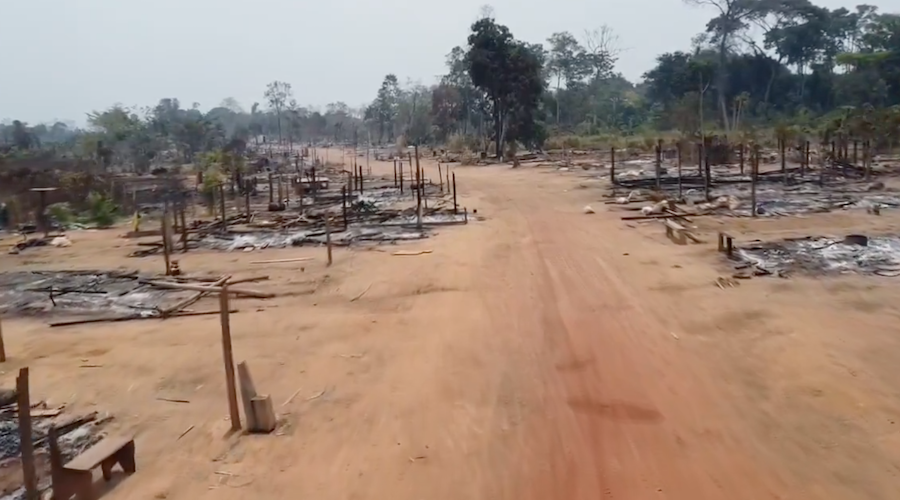Staff Writer | March 31, 2024 |

Illegal mining camp in the Agua Blanca sector located within the Caura National Park in the southern Bolivar state. (Image by the Strategic Operational Commander of the Venezuelan Armed Forces, Twitter/X.)
NGO Clima21 asked the Venezuelan government to ratify the Minamata Convention, which aims to restrict and limit the use and trade of mercury – a highly toxic pollutant – through a series of mid- and long-term strategies.

In particular, Article 7 of the Convention deals with artisanal and small-scale gold mining, stating that signatories have an obligation to minimize or outright eliminate mercury use and emissions in such activities within their borders.
In a report titled ‘Slow crime: The rights of children, women, Indigenous people and workers in southern Venezuela threatened by mercury’ and published on March 30, Clima21 states that there is an absence of effective, timely, sufficient and continuous responses to the problem that pollution by mercury derived from small-scale gold mining represents.
The dossier notes that although there is no official epidemiological information available, there is credible testimonial evidence that mercury is seriously affecting the health and lives of many people in the Venezuelan Amazon and that the widespread use of the metal threatens even those who live far from gold mining areas.
“This situation occurs even though the Venezuelan State is obliged by international conventions and national legislation to protect all people at risk and particularly vulnerable groups,” the report states. “[The government] should set up a national plan for the reduction and eventual elimination of the use of mercury in gold exploitation in the country, as well as provide medical assistance to all affected people.”
The document denounces that mercury pollution and its effects should be considered a form of state violence, which is combined with other types of violent crimes impacting people in Venezuela’s mining areas.
The NGO also demanded that mercury smugglers be punished.
According to the Bolivarian National Armed Forces (FANB), more than 7,000 people have been evicted from the Amazon region for practicing illegal mining, while over 2,500 soldiers have been deployed in national parks, natural reserves and hydrographic basins to run operations against illegal mining.
A day before Clima21 issued its report, the FANB issued a communiqué over social media saying it had seized 5,000 pieces of iron called ‘mill hammers,’ which are made from railway rails and were presumably intended to be used for illegal mining.
Illegal gold mining boomed in Venezuela as the economy suffered one of the deepest slumps in modern world history from 2013 onward. The industry has mostly attracted vulnerable Venezuelans, lured by the riches of the deposits. Frequent accidents and the presence of mafia and guerrilla groups prompt occasional raids by the authorities.
No comments:
Post a Comment